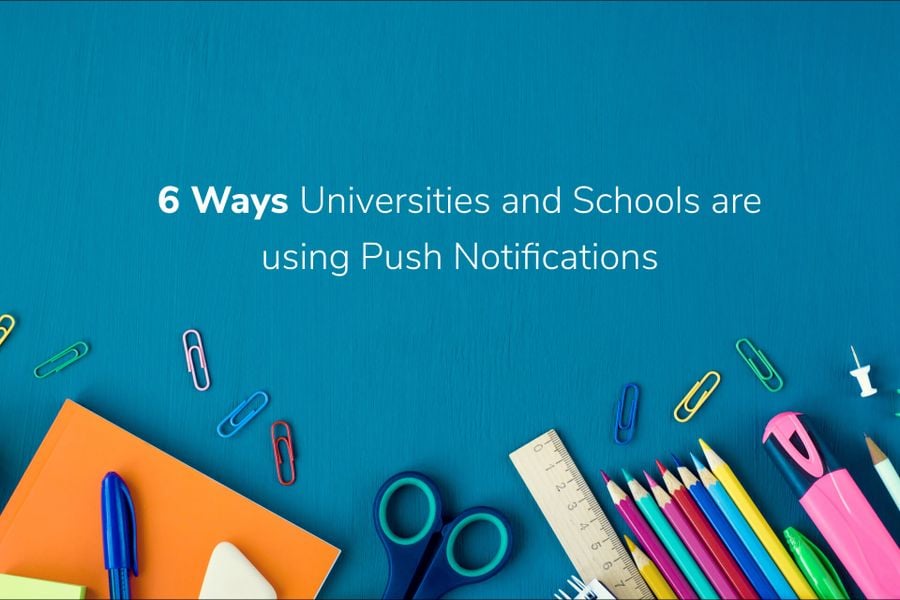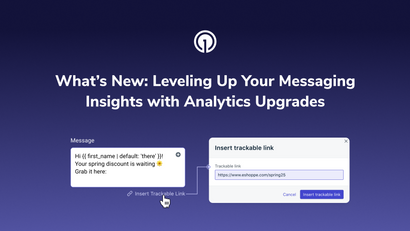Gen Z-ers practically exit the womb gripping a smartphone (98 percent use one). As a new wave of college students make their transition onto campus, universities benefit from communicating to these text messaging natives with a range of informational, logistical, and promotional content. These notifications also act to build student engagement.
As incoming freshmen know, navigating college can mean juggling a variety of new responsibilities. Accessing the full spectrum of resources available at their institution can be confusing. SMS is an excellent channel for connecting students to activities, informing them about financial resources, communicating safety and health information, and keeping them on top of their classes.
Why Text Messaging is Ideal for School Communication
Bulk SMS (also known as bulk text messaging) is well-suited to college students for a variety of additional reasons, including:
High Open Rates
Open rates for SMS marketing campaigns are much higher than emails. Text messages have a 97 percent read rate within 15 minutes of receipt.
Ubiquitous Smartphone Usage
On college campuses, smartphone usage is almost universal. In a survey conducted on undergraduates and Information Technology, 95 percent of undergraduates were found to own a smartphone.
Strong Personal Preference
College students are highly receptive to text updates. One study revealed that two thirds of freshmen and their parents found texts to be helpful and informative for communicating important dates. Another study found that people are more likely to open a text message before any other form of communication they receive.
Inclusive Audience
SMS, unlike mobile and web push, is not limited to individuals who have downloaded an app, or are active on their browser. Because SMS subscribers opt-in from different sources, they represent a new audience with different expectations than push and email subscribers.
Texting is comfortable, preferred, and natural for this demographic.
SMS works to connect important parties across campuses, streamlining communications among parents, students, and staff while improving the quality and interconnectedness of the student experience.
Let’s get into some other ways that colleges and universities are leveraging SMS.
1. Recruitment
Students applying to a university can opt in to text messages from their dream school to receive logistical information they need in order to submit their application. Colleges can provide clear text opt-ins to their SMS lists on their websites, at in-person events, or through an email. Prospective students can then subscribe to receive details about the next steps in the admissions process, application deadlines, relevant links, and more.
2. Emergencies and Safety Issues
Campus-wide emergencies are a critical concern for educational institutions, students, parents, and staff. SMS can convey critical real-time updates to emergency situations that arise on or near school campuses. These messages inform the campus community around the impending danger, tell them how to proceed, and ultimately protect their wellbeing. SMS can also notify students with information during power outages, evacuations, or public health alerts. In an age of COVID outbreaks, school shootings, and extreme weather events, SMS can be a powerful way to maintain safety.
3. Transactional Reminders
Students can benefit from receiving timely SMS reminders that help them manage their finances and stay on top of key deadlines. Universities can send texts when payments are due or overdue. SMS can also be used to convey scholarship information, grant application information, and more.
If students receive care at your institution’s health center, the student health center can send them appointment reminders, prescription refill updates, and alert them to any outstanding medical bills they might have. These types of reminders can be automated based on the deadline in question.
4. Advising and Class Updates
SMS can also help set students up for success in their long-term academic goals.
Text updates can streamline academic planning, expedite class enrollment, and encourage attendance to ultimately enhance academic performance.
Additionally, professors can send segmented messages to their different class cohorts to convey lecture locations, homework deadlines, exam dates, grades posted, discussion board posts, tutoring opportunities, and more.
5. Events
SMS is a great medium for promoting campus events. The institution can increase attendance at sports games, career fairs, cultural events, and other department-specific events. Messages can be batched out to all students if the event in question is campus-wide, or they can be directly targeted to specific majors or individuals who have opted in to receive event alerts based on individual preferences. For example, culture-loving students might choose to opt in to receive notifications around theater events and on campus musical events, while sports-loving students might prefer notifications about the next basketball or football game.
6. Surveys
SMS is not just a medium for informing students, but also for collecting feedback. You can use SMS messages to hyperlink students to online surveys. Collect feedback around student behavior and wellbeing, social and cultural activities, extracurriculars, use of campus facilities, the quality of classes, and the overall academic experience. This information is crucial because it helps universities, administrators, faculty members, and students alike improve the conditions that contribute to student learning and development.
Using Communication Tools to Respond to New Challenges
Beyond the education sector, communication channels have proven to be a valuable resource for managing public safety, promoting public health, and tackling logistical challenges. Learn how mobile communication channels are being leveraged to drive COVID vaccinations.
Take Advantage of Free Messaging Capabilities
Whether you have a website or mobile app, OneSignal is designed to help you send messages and seamlessly manage your user communication across every channel, including mobile push notifications, web push notifications, bulk SMS, in-app messaging, and email. Our platform is quick to set up and makes it easy to customize and automate your messaging strategy without doing any development work. If you don't have a OneSignal account, you can create one for free and set up automated alerts today. Don't take our word for it — sign up and see for yourself!
Get Started for Free



